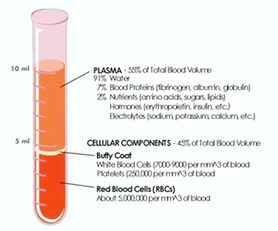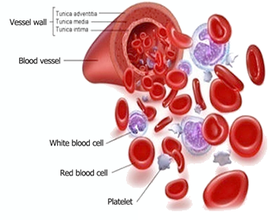Clinical Applications |
 In humans, PRP has been investigated and used as clinical tool for several types of medical treatments, including nerve injury, tendinitis, osteoarthritis, cardiac muscle injury, bone repair and regeneration, plastic surgery, and oral surgery. PRP has also received attention in the popular media as a result of its use in treating sports injuries in professional athletes. In humans, PRP has been investigated and used as clinical tool for several types of medical treatments, including nerve injury, tendinitis, osteoarthritis, cardiac muscle injury, bone repair and regeneration, plastic surgery, and oral surgery. PRP has also received attention in the popular media as a result of its use in treating sports injuries in professional athletes.
|

|
Orthopedics / Rehabilitation |
Dermatology / Plastic Surgery |
- Mitigation of pain after surgery
- Sports rehabilitation
- Articulation cure
- Ligament strengthening
- Reduction of inflammation
- Cure of chronic pain |
- Wrinkle care
- Scar rejuvenation
- Skin elasticity and whitening
- Graft of own fact
- Prevention and cure of alopecia |
Dental Clinic |
Ophthalmology |
- Implant cure
- Injury cure |
- Rejuvenation after lasek surgery
- Dry eye syndrome |
Research / Development |
Pet Hospital |
- Cell separation
- Tissue recycling
- Tissue engineering |
- Cure after surgery of pet |

|

|

|

|
Clinical Validity |
 The use and clinical validation of PRP is still in the early stages. Results of basic science and preclinical trials have not yet been confirmed in large-scale controlled clinical trials. For example, clinical use of PRP for nerve injury and sports medicine has produced "promising" but "inconsistent" results in early trials. A 2009 systematic review of the scientific literature stated that there are few controlled clinical trials that have adequately evaluated the safety and efficacy of PRP treatments and concluded that PRP is "a promising, but not proven, treatment option for joint, tendon, ligament, and muscle injuries". The use and clinical validation of PRP is still in the early stages. Results of basic science and preclinical trials have not yet been confirmed in large-scale controlled clinical trials. For example, clinical use of PRP for nerve injury and sports medicine has produced "promising" but "inconsistent" results in early trials. A 2009 systematic review of the scientific literature stated that there are few controlled clinical trials that have adequately evaluated the safety and efficacy of PRP treatments and concluded that PRP is "a promising, but not proven, treatment option for joint, tendon, ligament, and muscle injuries".
 Proponents of PRP therapy argue that negative clinical results are associated with poor quality PRP produced by inadequate devices. The fact that most gathering devices capture a percentage of a given thrombocyte count is a bias, since there is significant inter-individual variability in the platelet concentration of human plasma. More is not necessarily better in this case. The variability in platelet concentrating techniques may alter platelet degranulation characteristics that could affect clinical outcomes. Proponents of PRP therapy argue that negative clinical results are associated with poor quality PRP produced by inadequate devices. The fact that most gathering devices capture a percentage of a given thrombocyte count is a bias, since there is significant inter-individual variability in the platelet concentration of human plasma. More is not necessarily better in this case. The variability in platelet concentrating techniques may alter platelet degranulation characteristics that could affect clinical outcomes.
|

|
Implications for Doping |
 Some concern exists as to whether PRP treatments violate anti-doping rules, such as those maintained by the World Anti-Doping Agency. It is not clear if local injections of PRP can have a systemic impact on circulating cytokine levels, in turn affecting doping tests; it is also not clear whether PRP treatments have systemic anabolic effects or affect performance. In January 2011, the World Anti-Doping Agency removed intramuscular injections of PRP from its prohibitions after determining that there is a "lack of any current evidence concerning the use of these methods for purposes of performance enhancement". Some concern exists as to whether PRP treatments violate anti-doping rules, such as those maintained by the World Anti-Doping Agency. It is not clear if local injections of PRP can have a systemic impact on circulating cytokine levels, in turn affecting doping tests; it is also not clear whether PRP treatments have systemic anabolic effects or affect performance. In January 2011, the World Anti-Doping Agency removed intramuscular injections of PRP from its prohibitions after determining that there is a "lack of any current evidence concerning the use of these methods for purposes of performance enhancement".
|



